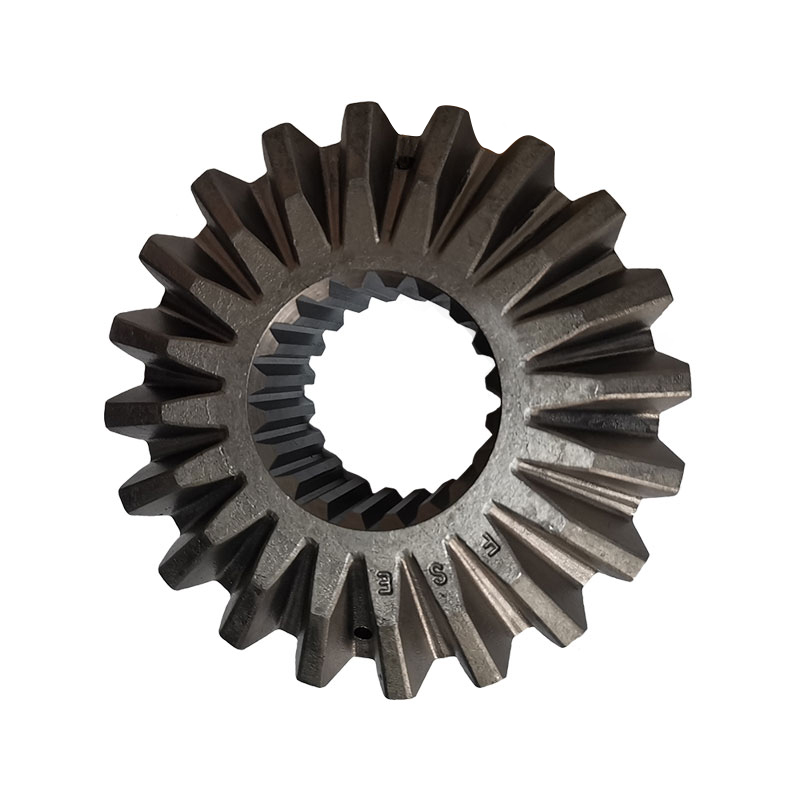Both the vehicle axle and the engine must be maintained […]
Both the vehicle axle and the engine must be maintained. Engine maintenance includes:

Use lubricating oil of appropriate quality grade: For gasoline engines, SD-SF grade gasoline engine oil should be selected according to the additional devices and use conditions of the intake and exhaust system; for diesel engines, CB-CD grade diesel engine oil should be selected according to the mechanical load, and the selection standard Subject to the requirements not lower than the manufacturer's requirements.
Regularly replace the oil and filter element: any quality grade of lubricating oil will change during use. After a certain mileage, the performance deteriorates, which will cause various problems to the engine. In order to avoid the occurrence of malfunctions, the oil should be changed regularly according to the conditions of use, and the amount of oil should be moderate (usually the upper limit of the oil gauge is better). When the oil passes through the pores of the filter, the solid particles and viscous substances in the oil accumulate in the filter. If the filter is clogged and the oil cannot pass through the filter element, it will burst the filter element or open the safety valve. Passing through the bypass valve will still bring the dirt back to the lubrication part, causing the engine to wear and the internal pollution will increase.
Regular maintenance of the water tank: Rust and scaling of the engine water tank are common problems. Rust and scale will restrict the flow of coolant in the cooling system, reduce heat dissipation, cause the engine to overheat, and even cause engine damage. The oxidation of the coolant will also form acidic substances, which will corrode the metal parts of the water tank, causing damage and leakage of the water tank. Regularly use BG540 (powerful and efficient cleaning agent for water tank) to clean the water tank to remove rust and scale, which can not only ensure the normal operation of the engine, but also extend the overall life of the water tank and engine.
Hubei Sanzhong Axle
Keep the crankcase well ventilated: Most gasoline engines are now equipped with PCV valves (crankcase forced ventilation devices) to encourage the engine to ventilate, but the pollutants in the blow-by gas "will deposit around the PCV valve, which may block the valve. If PCV If the valve is blocked, the polluted gas will flow back into the air cleaner. The polluted filter element will reduce the filtering capacity, and the inhaled mixed gas will be too dirty, which will further cause the pollution of the crankcase, resulting in increased fuel consumption, increased engine wear, and even damage to the engine. , PCV must be maintained regularly to remove contaminants around the PCV valve.
Clean the fuel system regularly: When fuel is supplied to the combustion chamber through the fuel path, it will inevitably form colloids and carbon deposits, which will deposit in the fuel passages, carburetor, fuel injectors and combustion chambers, and interfere with the fuel. Flow, destroying the normal air-fuel ratio, causing poor fuel atomization, causing engine surging, knocking, unstable idling, poor acceleration and other performance problems. Use BG208 (powerful cleaning agent for fuel system) to clean the fuel system, and regularly use BG202 to control the generation of carbon deposits, which can always keep the engine in a better condition.
Clean the crankcase regularly: During the operation of the engine, the high-pressure unburned gas, acid, water, sulfur and nitrogen oxides in the combustion chamber enter the crankcase through the gap between the piston ring and the cylinder wall, and are caused by wear of the parts. The metal powder mixes together to form sludge. When the amount is small, it will be suspended in the oil, and when the amount is large, it will precipitate out of the oil, blocking the filter and oil holes, causing difficulty in lubrication of the engine and causing wear. In addition, when the engine oil is oxidized at high temperatures, paint film and carbon deposits will be formed to adhere to the piston, which will increase the engine's fuel consumption and decrease its power. Therefore, regularly use BGl05 (quick cleaning agent for lubrication system) to clean the crankcase to keep the inside of the engine clean.
Regular maintenance of the water tank: Rust and scaling of the engine water tank are common problems. Rust and scale will restrict the flow of coolant in the cooling system, reduce heat dissipation, cause the engine to overheat, and even cause engine damage. The oxidation of the coolant will also form acidic substances, which will corrode the metal parts of the water tank, causing damage and leakage of the water tank. Regularly use BG540 (powerful cleaning agent for water tank) to clean the water tank to remove rust and scale, which can not only ensure the normal operation of the engine, but also extend the overall life of the water tank and engine.